News
-
 Life
LifeA gut bacteria transplant may not help you lose weight
A small study finds that transplanting gut microbes from a lean person into obese people didn’t lead to weight loss, as hoped.
-
 Astronomy
AstronomyDying stars called collapsars may forge much of the universe’s gold
Spinning stars that collapse into black holes could help explain the origins of heavy elements such as gold and silver.
-
 Physics
PhysicsWhat a nearby kilonova would look like
Physicists imagined what we’d see in the sky if two neutron stars collided just 1,000 light-years from Earth.
-
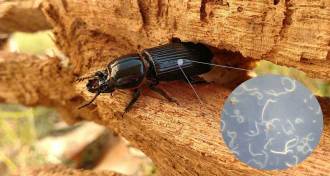 Earth
EarthA belly full of wriggling worms makes wood beetles better recyclers
Common beetles that eat rotten logs chew up more wood when filled with a roundworm larvae, releasing nutrients more quickly back to the forest floor.
-
 Physics
PhysicsLIGO is on the lookout for these 8 sources of gravitational waves
Gravitational wave hunters are on a cosmic scavenger hunt. Here’s what they’re hoping to find.
-
 Science & Society
Science & SocietyMedical student evaluations appear riddled with racial and gender biases
Women and minorities are more frequently described by personality in medical student evaluations, but men are described by their skills, a study says.
-
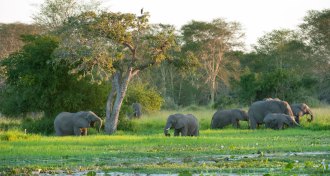 Ecosystems
EcosystemsWar wrecked an African ecosystem. Ecologists are trying to restore it
Bringing back big predators to Gorongosa, once a wildlife paradise in Mozambique, is just one piece of the puzzle in undoing the damage there.
By Jeremy Rehm -
 Science & Society
Science & SocietyFacebook data show how many people left Puerto Rico after Hurricane Maria
Conventional surveys can’t track migration after natural disasters in real time. But Facebook data may provide a crude estimate of those who flee.
By Sujata Gupta -
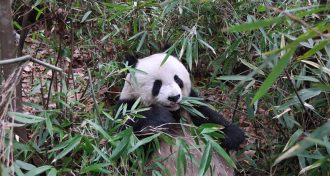 Animals
AnimalsPandas’ share of protein calories from bamboo rivals wolves’ from meat
The panda gut digests protein in bamboo so well that the animal’s nutritional profile for calories resembles a wolf’s.
By Susan Milius -
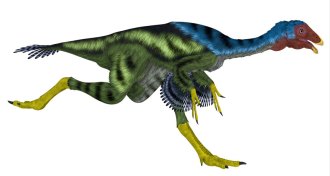 Paleontology
PaleontologyA dinosaur’s running gait may reveal insights into the history of bird flight
In what may have been a precursor to avian flight, a flightless winged dinosaur may have flapped its wings as it jogged.
-
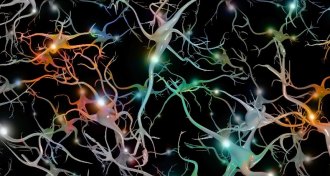 Artificial Intelligence
Artificial IntelligenceAn AI used art to control monkeys’ brain cells
Art created by an artificial intelligence exacts unprecedented control over nerve cells tied to vision in monkey brains, and could lead to new neuroscience experiments.
-
 Planetary Science
Planetary ScienceWater has been found in the dust of an asteroid thought to be bone-dry
Scientists detected water in bits of an asteroid thought to be devoid of the liquid. Such space rocks might have helped create Earth’s oceans.